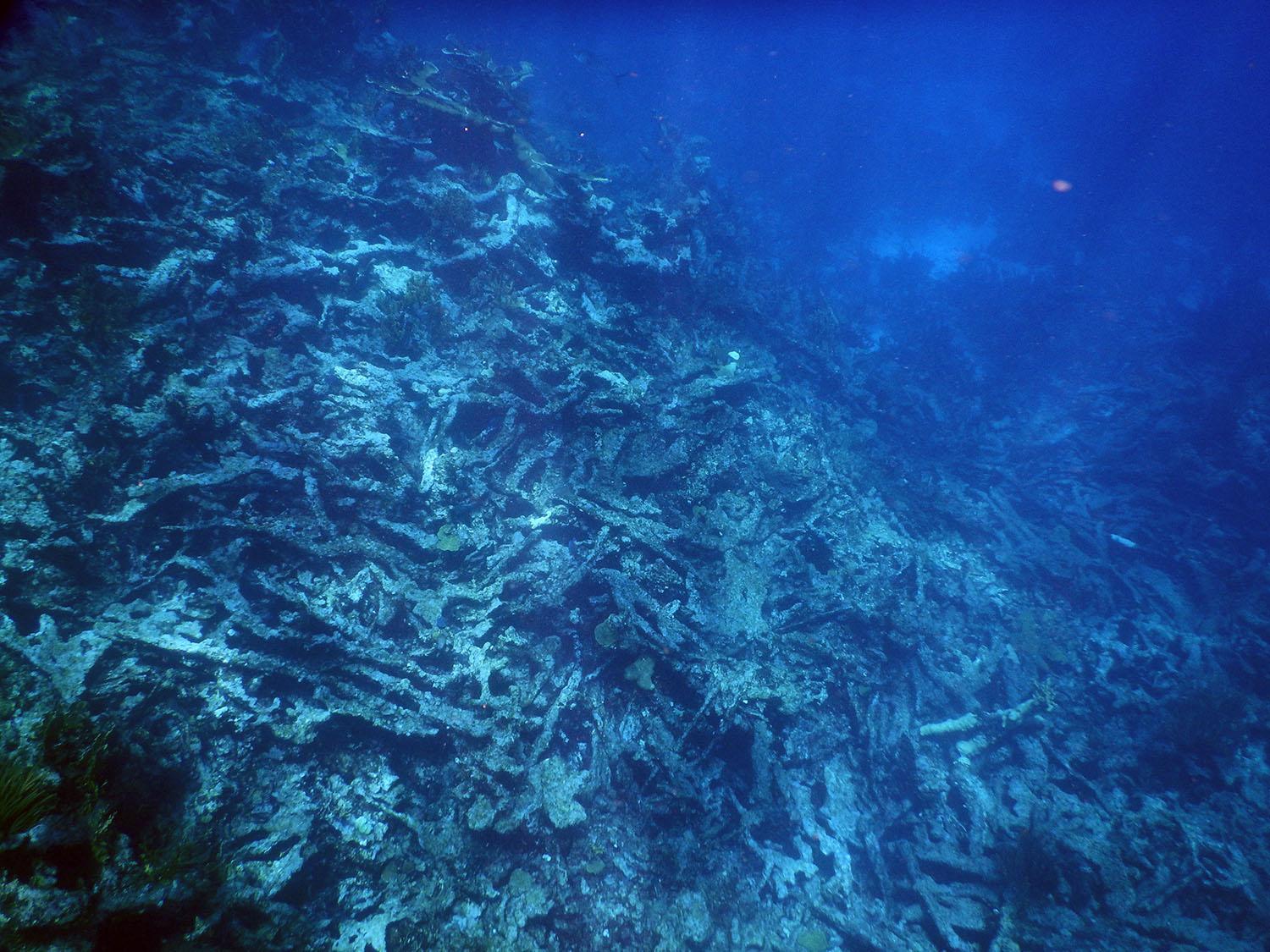Coral reefs cannot grow fast enough to keep pace with rising sea levels, finds study
Sea floor is getting lower as erosion gets worse

Coral reefs are failing to keep pace with rising sea levels, increasing the depth of the sea and removing a natural form of storm defence, according to a new study.
Researchers were stunned by the amount of reef lost due to erosion at sites in the Pacific off Hawaii, Florida’s Atlantic coast and in the Caribbean, saying it had resulted in water depths not predicted to occur until 2100.
They said it was evidence that an “Anthropocene reef crisis” had begun.
Corals are facing an array of problems from bleaching caused by the rising temperatures and ocean acidification to dredging and pollution from the land.
The iconic Great Barrier Reef has been so badly affected that one leading environmental writer was moved to write its obituary.
In the new study, researchers examined two sites in the Florida Keys, two in the US Virgin Islands and also the waters around the Hawaiian island of Maui.
The sea floor was found to be lower at all five sites by anything from nine to 80 centimetres.
All five reefs had lost large amounts of coral, sand and other sea floor materials to erosion.
Dr Kimberly Yates, of the US Geological Survey, said: “Our measurements show that seafloor erosion has already caused water depths to increase to levels not predicted to occur until near the year 2100.
“At current rates, by 2100 sea floor erosion could increase water depths by two to eight times more than what has been predicted from sea level rise alone.”
Writing in the journal Biogeosciences, the researchers warned that the deeper water would increase coastal erosion, storm surges and tsunami hazards.
“The magnitude of reef volume lost due to erosion provides evidence for the onset of an Anthropocene reef crisis similar to ancient reef crises caused by climate change and marked in the geologic record by regional and global declines in reef volume,” they added.
John Haines, also of the USGS, said the economic and ecological importance of coral reefs had long been recognised.
The beauty of coral reefs
Show all 6“This study tells us that they have a critical role in building and sustaining the physical structure of the coastal seafloor, which supports healthy ecosystems and protects coastal communities,” he said.
“These important ecosystem services may be lost by the end of this century, and nearby communities may need to find ways to compensate for these losses.”
More than 200 million people around the world live in coastal areas protected by coral reefs from waves, storms and erosion.
They also provide about a quarter of the fish harvests in tropical areas.
Subscribe to Independent Premium to bookmark this article
Want to bookmark your favourite articles and stories to read or reference later? Start your Independent Premium subscription today.

Join our commenting forum
Join thought-provoking conversations, follow other Independent readers and see their replies